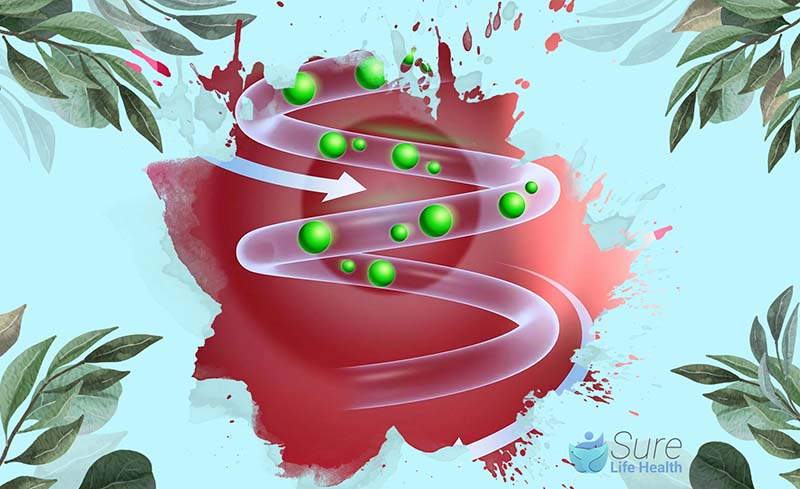Exploring the impact of pineapple on male sexual health often highlights its reputed benefits, including the potential influence on men’s sperm quality. This discussion seeks to clarify the validity of pineapple’s acclaimed advantages, particularly its effect on sperm count and overall male fertility.
The examination of pineapple’s health benefits for men aims to demystify whether its popularity is rooted in scientific evidence. The analysis also considers what makes pineapple a recommended addition to a man’s diet and investigates if other fruits offer comparable benefits.
For those interested in understanding the scientific rationale behind the claims associated with “Is Pineapple Good for Men’s Sperm?”, a detailed exploration follows.
Is Pineapple Good for Men’s Sperm?
Absolutely! Pineapple is indeed good for men’s sperm. Rich in vitamin C and bromelain, pineapple has been linked to improvements in sperm quantity, quality, and motility, according to several studies.
Numerous studies have highlighted the positive impact of vitamin C on sperm health, resulting in increased sperm count. Furthermore, bromelain, a compound found in pineapple, plays a role in improving reproductive health.
These nutrients in pineapple can enhance sexual performance, libido, and the quality of erections, making it a valuable addition to men’s reproductive health.

Benefits of Pineapple for Men’s Sexual Health
Wondering about the sexual perks pineapple offers for men? Let’s delve into it:
Increase Sperm Count and Health
Pineapple serves as an excellent source of manganese, a nutrient crucial for sperm health. Research indicates that manganese can enhance sperm motility, facilitating the fertilization process.
A study involving over 1,100 men revealed that even a small concentration of manganese positively influences sperm motility.
May Affect Testosterone Levels
Certain nutrients present in pineapples may impact sex hormone production, particularly testosterone, the primary male sex hormone.
Bromelain, known for its digestive and immune benefits, also helps in maintaining testosterone levels.
Additionally, the zinc content in pineapples, although in small amounts, contributes to balancing testosterone levels.
Improve Blood Flow
Raw pineapple boasts high levels of vitamin C, an antioxidant renowned for bolstering the immune system and curbing inflammation. Studies in rodents suggest that reduced inflammation correlates with enhanced blood flow.
This connection is crucial for sexual health since optimal blood flow is essential for sexual arousal and erectile function. Healthy blood flow is pivotal in the erection process, where neurotransmitters signal blood vessels in the penis to relax, thereby increasing blood supply to erectile tissues.
Vitamin C-rich foods like pineapple, by combating inflammation, may potentially aid in alleviating erectile dysfunction.

7 Other Benefits That Pineapple Brings to Health
Apart from its impact on sexual health, pineapple offers a plethora of other benefits that contribute to overall well-being. Here are seven noteworthy advantages:
Helps Reduce Stress
Pineapple contains serotonin, a natural stress-reliever that helps keep hormones and nerves relaxed.
Consuming pineapple or its juice can mitigate stress and potentially prevent associated health issues. Just a glass of pineapple juice can work wonders in alleviating stress.

AIDS Digestion
The rich content of bromelain, dietary fiber, and vitamin C in pineapple aids digestion.
Whether consumed as juice or eaten whole, pineapple can alleviate stomach discomfort and promote better digestion after indulging in heavy meals.
Helps Prevent Cancer
Regular consumption of pineapple, particularly its juice, is associated with a reduced risk of cancer. This fruit’s abundance of antioxidants slows down cell damage, potentially delaying aging effects.
Pineapple’s antioxidants also help shield the body from various diseases and combat harmful organisms.
Helps Keep Skin and Hair Healthy
Pineapple benefits extend to skin and hair health.
It can rejuvenate the skin, alleviating issues like acne, rashes, and damage, leaving it looking fresh and clean.

Improve Eyesight
Pineapple’s high vitamin C content and numerous antioxidants contribute to better vision and reduce the risk of age-related macular degeneration, a common eye condition.
Reduces the Risk of Blood Clots
The presence of bromelain in pineapple reduces the risk of blood clots, making it an ideal snack choice.
Regular consumption of pineapple can offer multifaceted health benefits, including reducing the likelihood of blood clot formation.
Helps Reduce Arthritis
Pineapple contains bromelain, renowned for its potent anti-inflammatory properties. Drinking pineapple juice can ease joint pain and potentially prevent arthritis, making it a beneficial addition to arthritis management.
Incorporating pineapple into your diet can not only enhance sexual health but also contribute to overall health and well-being, offering a delicious and nutritious way to support various bodily functions and prevent ailments.
Is Pineapple Good for Erectile Dysfunction?
Absolutely. Pineapple is packed with several nutrients and antioxidants that can positively impact sexual health, especially in men. Here’s how:
Vitamin C: Pineapple contains vitamin C, an antioxidant renowned for strengthening the immune system and reducing inflammation. Improved blood flow, facilitated by reduced inflammation, is crucial for sexual arousal and erectile function. Enhanced blood flow allows blood vessels in the penis to relax, leading to increased blood flow and the potential for achieving an erection.
Manganese: Manganese is a mineral crucial for sexual health, particularly in men. Studies suggest that a deficiency in manganese can contribute to a decrease in libido and ejaculation problems. Pineapple serves as an excellent source of manganese, offering 67% of the daily recommended intake in just one cup.
- Thiamine (Vitamin B1): Thiamine, also known as vitamin B1, plays a vital role in maintaining overall bodily function. It is also recognized as an aphrodisiac, further enhancing pineapple’s appeal for those seeking to improve sexual health.
- Bromelain: Pineapple contains bromelain, an enzyme with anti-inflammatory properties. Research indicates that bromelain can induce relaxation in human erectile tissue, potentially offering another avenue for treating male impotence.
Conclusion
In summary, the answer to “Is Pineapple Good for Men’s Sperm?” is a resounding yes. Pineapple enhances sperm quality, motility, and count, thanks to its rich content of vitamins and minerals.
Beyond improving fertility and sexual health, it supports overall well-being, from boosting blood flow and balancing hormones to aiding in digestion and reducing inflammation. This nutrient-packed fruit is a simple, tasty addition to any diet for those looking to improve their reproductive health and more.
Be sure to explore more insightful blogs from Sure Life Health, where we continue to shed light on the latest trends and breakthroughs in health and wellness.
Professor Gaye Cunnane, PhD, MB, FRCPI
As the Director of Health and Wellbeing at RCPI, Professor Gaye Cunnane is at the helm of initiatives aimed at enhancing the health and well-being of RCPI Trainers and Trainees. Her role extends beyond administration; she is also a respected clinical professor of rheumatology and a consultant rheumatologist at Trinity College Dublin (TCD) and St James’s Hospital. Prof. Cunnane’s medical journey began at TCD, where she graduated from medical school, and her path has been marked by both clinical and academic excellence.
After completing her basic clinical training in medicine, she embarked on PhD studies at University College Dublin and St Vincent’s University Hospital. Her research during this period was focused on prognostic markers in early inflammatory arthritis, a project that saw her collaborating with esteemed universities across Europe, including in Switzerland, The Netherlands, the UK, and Sweden.
Prof. Cunnane’s career took her to the University of California, San Francisco, where she spent three years delving into research on new treatments for lupus. Her academic prowess led her to the University of Leeds in 2001 as a senior lecturer, before returning to Ireland in 2003 to assume her current roles. She has also served as the National Specialty Director for Rheumatology training in Ireland, Programme Director for Basic Specialist Training with RCPI, and as a past President of the Irish Society for Rheumatology.
PUBLISHED ARTICLES
“Rheumatic disease differentiation using immunoglobulin G sugar printing by high-density electrophoresis”: Published in The Journal of Rheumatology, this study reflects her in-depth investigation into rheumatic diseases.
“Benefits of exercise in patients with rheumatoid arthritis: a randomized controlled trial”: This research work, highlighting the positive impact of exercise on rheumatoid arthritis, underscores Prof. Cunnane’s dedication to practical, patient-centered research.
Additionally, Prof. Cunnane has made notable contributions to the Annals of the Rheumatic Diseases, discussing early referral, diagnosis, and treatment of rheumatoid arthritis. She has also been involved in a study on the NCBI platform investigating exercise benefits in rheumatoid arthritis patients.
Professor Gaye Cunnane’s career is a testament to her commitment to improving patient outcomes in rheumatology through rigorous research, clinical excellence, and dedicated teaching. Her work continues to influence the field of rheumatology, both in Ireland and internationally.

